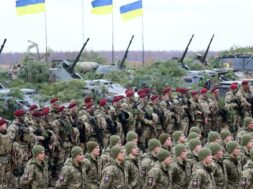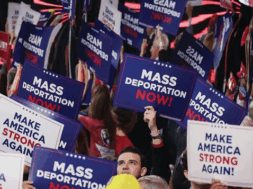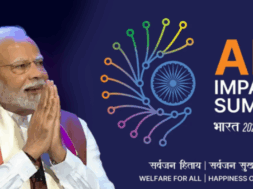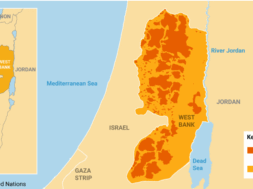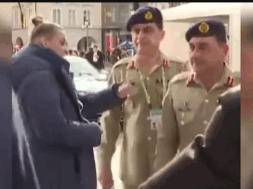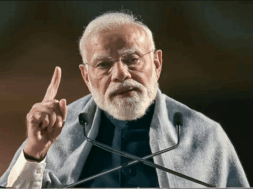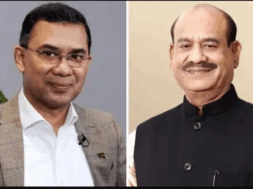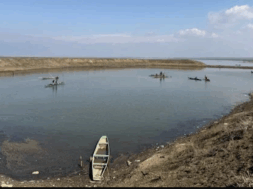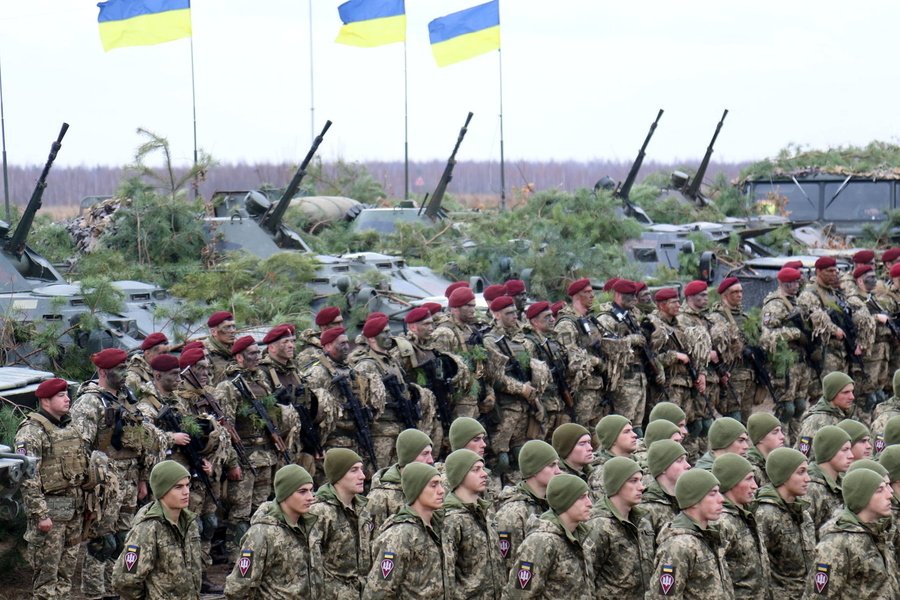
Russia – Ukraine War may be Entering a More Decisive Phase: Experts say
Manas Dasgupta
NEW DELHI, March 25: Even as the Ukrainian authorities claimed that at least 300 civilians were perished in Russian attack on a theatre in Mariupol last week, the intensity of the Russian invasion has considerably slowed down as the Ukrainian troops are claimed to be recapturing towns east of the capital city of Kyiv and Russian forces who had been trying to seize the capital are falling back on overextended supply lines.
Claiming Russian fall-back, Britain said on Friday that one of the strongest indications yet of a shift in momentum in the war. The mayor of a suburb east of Kyiv said Ukrainian troops had recaptured a nearby village and thousands of civilians were leaving the area in response to a call from the authorities to get out of the way of the counter-attack.
On Thursday, Ukraine said its forces had destroyed the Russian landing ship the ‘Orsk’ at the Russian-occupied port of Berdyansk. Video footage showed smoke rising from a blaze at a dock and the flash of an explosion.
Many experts, however, feel that the Russia – Ukraine war may be entering a more decisive phase now. “President Vladimir Putin’s war in Ukraine is approaching a new, potentially more dangerous phase after a month of fighting has left Russian forces stalled by an outnumbered foe, some experts said.
Putin, they said, was left with stark choices — how and where to replenish his spent ground forces, whether to attack the flow of Western arms to Ukrainian defenders, and at what cost he might escalate or widen the war.
Battlefield trends are difficult to reliably discern from the outside, but some Western officials say they see potentially significant shifts. The Pentagon said Wednesday that some Russian troops were digging in at defensive positions outside of Kyiv rather than attempting to advance on the capital, and that in some cases the Russians have lost ground in recent days.
Ukrainian officials in the strategic port city of Mariupol said on Friday that they feared 300 people could have died in last week’s Russian strike on a drama theatre building where over a 1,00 people, most of them children, had taken refuge. “From eyewitnesses, information is emerging that about 300 people died in the Drama Theatre of Mariupol following strikes by a Russian aircraft,” Mariupol city hall wrote on Telegram.
President Volodymyr Zelensky said last week following the strike that hundreds of people, believed mostly to be women and children, had taken in the building at the time of the attack. Mariupol city hall said Friday the theatre was destroyed in a “cynical” attack and claimed that Russia knew civilians were taking refuge in the building.
Zelensky had also claimed that over a lakh of people had been trapped in the besieged strategic port city of Mariupol without food, water or power in the city and enduring fierce shelling by Russian forces. The leader of Russia’s southern republic of Chechnya said Thursday that forces from his region had taken control of Mariupol city hall and hoisted the Russian flag.
Russia’s defence ministry said on Friday it has “liberated” 93 per cent of the territory of the self-proclaimed Luhansk People’s Republic, one of two Russian-backed breakaway regions in eastern Ukraine. The ministry earlier said that the main targets of the first phase of what Russia calls its “special operation” in Ukraine had been completed.
China’s state-run Sinopec Group has suspended talks for a major petrochemical investment and a gas marketing venture in Russia heeding a government call for caution as sanctions mount over the invasion of Ukraine. The move by Asia’s biggest oil refiner to hit the brakes on a potentially half-billion-dollar investment in a gas chemical plant and a venture to market Russian gas in China highlights the risks, even to Russia’s most important diplomatic partner, of unexpectedly heavy Western-led sanctions.
Beijing has repeatedly voiced opposition to the sanctions, insisting it will maintain normal economic and trade exchanges with Russia, and has refused to condemn Moscow’s actions in Ukraine or call them an invasion. But behind the scenes, the government is wary of Chinese companies running afoul of sanctions – it is pressing companies to tread carefully with investments in Russia, its second-largest oil supplier and third-largest gas provider.
As the US President Joe Biden and 29 other leaders of NATO walked into the alliance’s sprawling Brussels headquarters Thursday morning, they passed a graffiti-sprayed remnant of the Berlin Wall, a monument to Europe’s belief that it had won a permanent victory over the nuclear-armed, authoritarian adversary that challenged the West throughout the Cold War.
Now, exactly one month into the Russian invasion of Ukraine, the mood permeating the extraordinary NATO summit meeting was a mix of both fear and opportunity. The fear is that the aftermath of the invasion has rapidly transformed Europe into two armed camps once again, though this time the Iron Curtain looks very different. The opportunity is that, 30 days into a misbegotten war, Russia has already made so many mistakes that some of the NATO leaders believe that, if the West plays the next phase right, President Vladimir Putin of Russia may fail at his apparent objective of taking all of Ukraine.
Following a meeting with European Commission President Ursula von der Leyen, Biden on Friday said the US and the EU unitedly condemns Russia’s ‘unjustified and unprovoked war of aggression against Ukraine.’ ‘Together, we announced new steps to reduce Europe’s dependency on Russian energy,’ he said in a tweet.
In a rejoinder to the US claims, Kremlin said on Friday that US talk of Russia possibly resorting to chemical weapons in Ukraine was a tactic to divert attention away from awkward questions for Washington. Kremlin spokesman Dmitry Peskov told a conference call with reporters that the military would submit proposals to President Vladimir Putin on how Russia should strengthen its defences in response to NATO beefing up its eastern flank. There was no official position on whether Russia would rebuild Ukrainian towns and cities such as Mariupol, Peskov added.
Russian healthcare regulator Roszdravnadzor Friday said medicine shortages were due to “artificially” higher demand and that suppliers were not currently able to replenish stocks on time, official sources said. Russians have rushed to stock up on anti-depressants, sleeping pills and contraceptives among other products since the conflict in Ukraine began, data released on Thursday showed, with people buying a month’s worth of medicine in just two weeks.
Meanwhile, thousands of people took to the streets of Bulgaria’s capital, Sofia, Thursday to protest Russia’s invasion of Ukraine and to show solidarity with Ukrainians. The rally, organised on social networks, followed Zelensky’s call on people around the world to protest the month-long war. Some of the 60,000 refugees from Ukraine joined the demonstration. Waving Ukrainian and European flags, protesters chanted “Stop the war,” “Stop Putin” and “Freedom for democratic Ukraine.” The organisers of the event said it was time for Bulgaria to come out in large numbers in support of a sovereign Ukraine.
